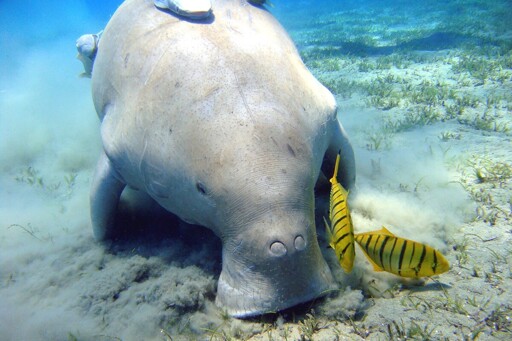In April this year, Mozambican President Daniel Chapo announced the launch of a national petrochemical city project in Mavanza village in Vilankulo district of Inhambane province. The coastline of Inhambane province, or the Inhambane seascape, is a globally important area that conservation groups have previously urged the government of Mozambique to protect for its threatened marine mammals, seabirds and sharks.
The $2 billion petrochemical city project, expected be completed by 2028, will be built by the Hong Kong-based Phoenix International Group, Chapo said at the launch. The project will include thermal power stations, refineries, maritime terminals, units to produce polymers and fertilizers and residential areas with schools and hospitals, Chapo said.
“The fact that a quarter of the way through the 21st century a ‘national petrochemical city’ is being planned in a globally significant and highly sensitive area for biodiversity is shocking enough,” Tim Davenport, Africa director of the nonprofit Re:wild, told Mongabay by email. “But a development of this magnitude … demonstrates abject short-termism, a failure to understand the true value of nature, and a grave disregard for some of the region’s most disadvantaged communities.”
The Inhambane seascape is globally recognized as a critical area for conservation. The seascape includes islands of the Bazaruto Archipelago National Park and the Vilanculos Coastal Wildlife Sanctuary, home to more than 2,000 species of fish and several threatened species of sharks, rays, skates, sawfish and sea turtles. The Bazaruto Archipelago also hosts the last known viable population of dugong (Dugong dugon) in East Africa, with only a few hundred left.
In October 2024, Re:wild and several international conservation organizations published an open letter in response to a slew of mining projects planned along the Inhambane seascape. The organizations noted that according to the government’s mining cadastral map portal, more than 70% of the Inhambane coastline had been marked for some form of mining. In their letter, the organizations urged Mozambique’s political leaders to protect the seascape and to invest in projects that benefit the local communities, “instead of allowing foreign corporations to unsustainably extract Mozambique’s natural resources and irreversibly destroy Inhambane’s environment.”
At the launch of the national petrochemical city, Chapo said the industries will maintain high international environmental standards. However, Davenport said he’s skeptical environmental standards will be met given the previous track record of foreign companies on Mozambique’s coasts.
In 2024, the Mozambican anti-corruption NGO, the Public Integrity Center, accused a Chinese-owned company, Haiyu Mining, of environmental transgressions along the coast of Angoche district, “despite initial promises just like these,” Davenport said. “It is impossible to see how an industrial plant of this size — financed by an external nation with huge leverage over Mozambique — will have anything other than calamitous environmental impacts locally and regionally. Anyone, not least Mozambicans, who has any concern for nature, biodiversity or social justice should be deeply concerned by this project.”
archived (Wayback Machine)


